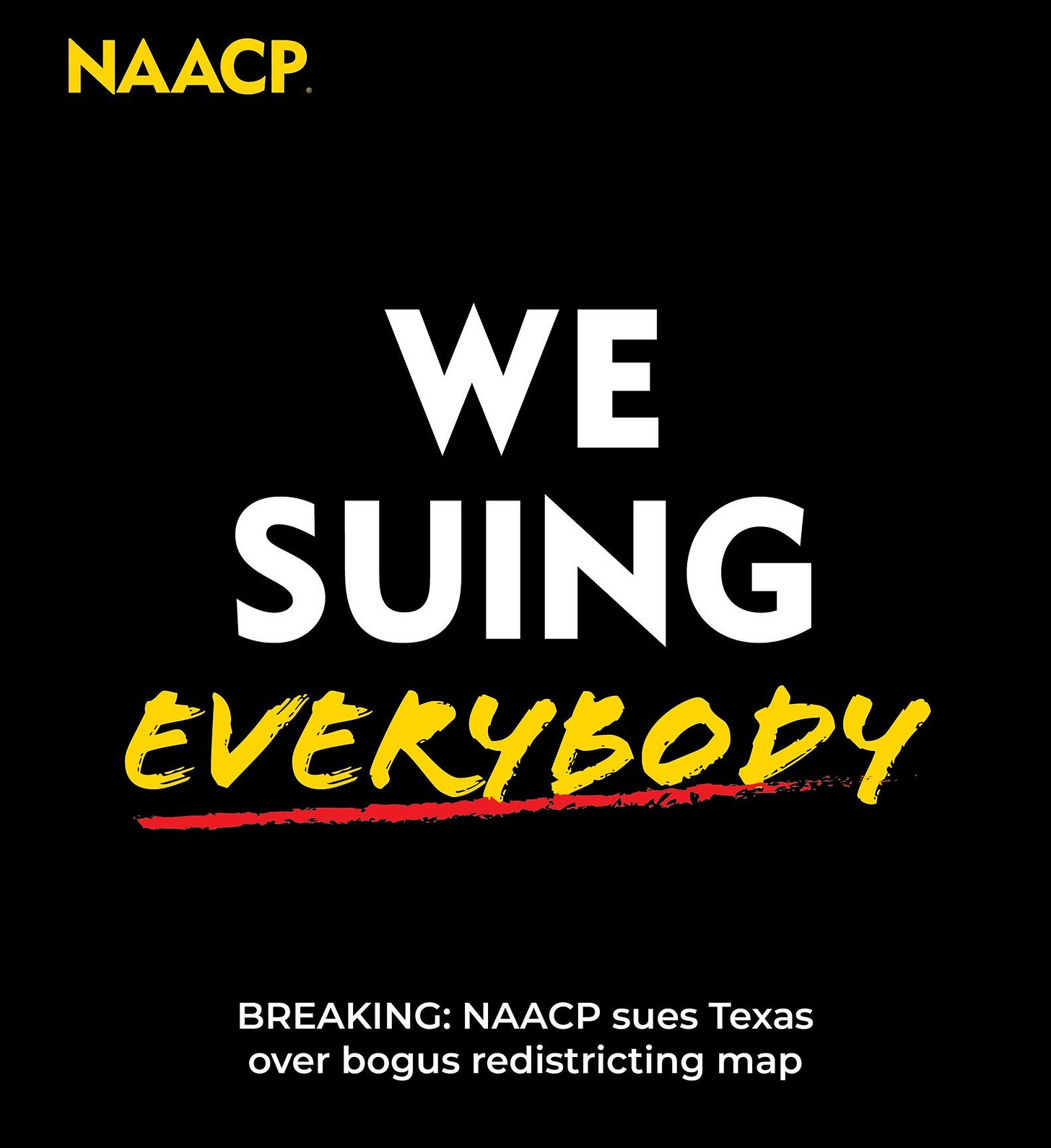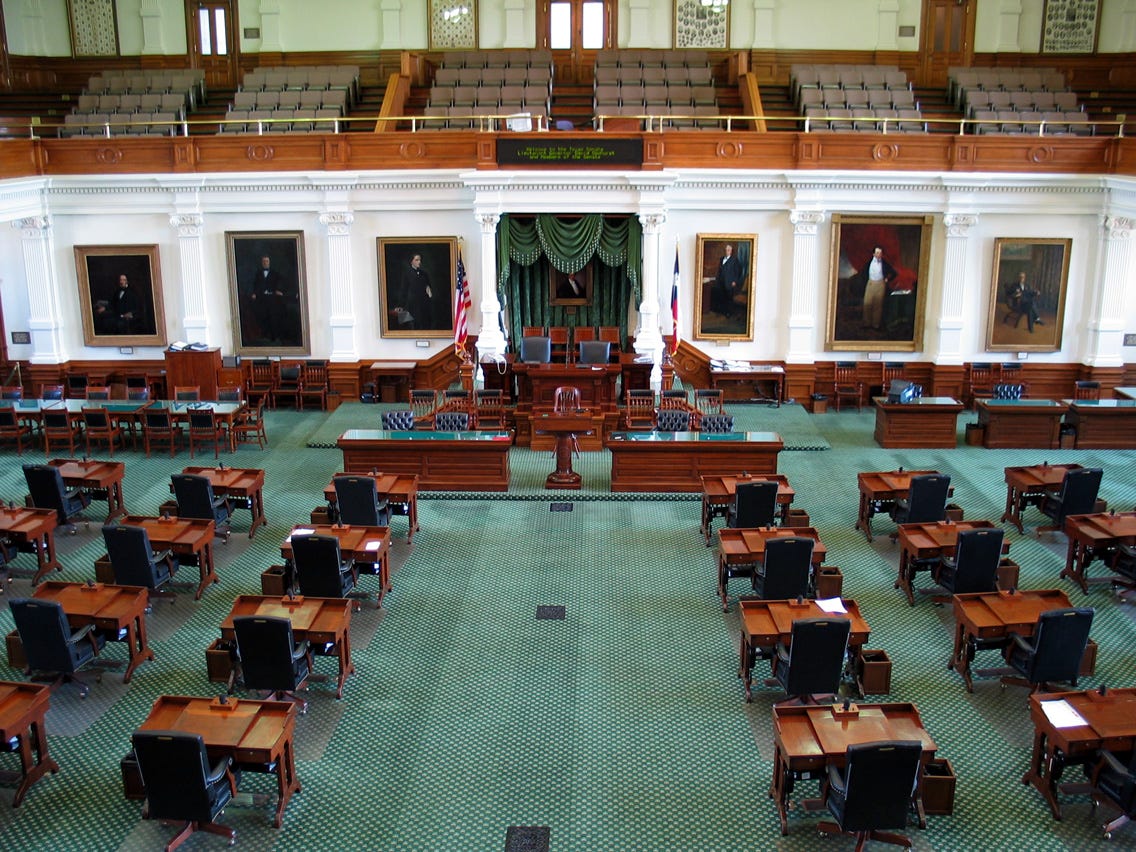Texas Faces Federal Lawsuit Over 2026 Congressional Map Accused of Racial Gerrymandering
Civil Rights Groups Challenge Republican Redistricting Effort
The National Association for the Advancement of Colored People (NAACP) and the Lawyers' Committee for Civil Rights Under Law filed a federal lawsuit on August 26, 2025, challenging Texas's newly approved congressional map for the 2026 elections, alleging the Republican-drawn districts constitute illegal racial gerrymandering designed to weaken Black and Latino voting power. The lawsuit comes just days after the Texas Legislature passed the controversial redistricting plan that could flip five congressional seats to Republican control, following direct pressure from President Donald Trump to help the GOP maintain its narrow House majority.
The legal challenge represents the opening salvo in what experts predict will be extensive litigation over Texas's unprecedented mid-decade redistricting effort, which breaks from the traditional practice of redrawing maps only once per decade following the U.S. Census.
"Racially Motivated" Maps Target Minority Representation
NAACP President and CEO Derrick Johnson condemned the redistricting effort as transparently discriminatory, noting the stark demographic disparities in political representation. "The state of Texas is only 40 percent white, but white voters control over 73 percent of the state's congressional seats," Johnson said in a statement accompanying the lawsuit filing. "It's quite obvious that Texas's effort to redistrict mid-decade, before next year's midterm elections, is racially motivated. The state's intent here is to reduce the members of Congress who represent Black communities, and that, in and of itself, is unconstitutional".
The proposed congressional map would give Republicans control of 30 out of Texas's 38 House seats, representing 79% of districts compared to Trump's 56.2% statewide vote share in 2024, according to political analysis. This level of partisan advantage significantly exceeds proportional representation based on electoral performance.
Legal Strategy
Civil rights attorneys are challenging the maps on several constitutional grounds, including violations of the Equal Protection Clause and the Voting Rights Act of 1965. Damon T. Hewitt, president and executive director of the Lawyers' Committee for Civil Rights Under Law, described the effort as deliberately harmful. "The Trump administration told Texas in no uncertain terms to create illegal, discriminatory maps, and Texas actively carried out the mandate," Hewitt said. "This is an intentionally harmful and discriminatory effort, and we must call it out as such".
The League of United Latin American Citizens (LULAC) filed a separate 67-page complaint against Governor Greg Abbott and Secretary of State Jane Nelson, arguing that redrawing districts mid-decade based on the same 2020 Census data used for the original 2021 maps violates the U.S. Constitution's Equal Protection Clause.
Republican Defense
Republican sponsors of the redistricting legislation have defended the maps as politically motivated rather than racially discriminatory. State Senator Phil King, who sponsored the measure, stated he had "two objectives: to ensure all maps were legal and to create a more favorable environment for Republican congressional candidates in Texas". Gov.” Governor Abbott has expressed confidence that the maps will withstand legal scrutiny and anticipates other Republican-led states will pursue similar strategies.
The redistricting effort received official justification from a July 7 Department of Justice letter, which claimed that four existing districts constitute "unconstitutional racial gerrymanders." However, legal experts have questioned the timing and motivations behind the federal intervention.
National Implications and Retaliatory Threats
The Texas redistricting battle has triggered threats of retaliatory gerrymandering from Democratic governors nationwide. California Governor Gavin Newsom has authorized efforts to redraw maps that could eliminate five Republican congressional seats, while Wisconsin Democrats have filed similar lawsuits. The NAACP explicitly called on Tuesday for all other states to "act immediately by redistricting and passing new, lawful, and constitutional electoral maps".
Political analysts warn that successful Texas redistricting could fundamentally alter the national electoral landscape. According to the Brookings Institution analysis, if Republicans engineer a five-seat shift in Texas, the GOP would effectively begin the 2026 midterm elections with 225 House seats and a majority that would triple from 5 to 15.
Timeline Challenges and Legal Urgency
The compressed timeline for the 2026 primary elections adds significant urgency to the legal challenges. Voting rights advocates have requested expedited court consideration to ensure any relief is available for the 2026 elections, including time for potential emergency Supreme Court review. Judge hearings are expected to begin as early as September, with advocates arguing the court should immediately block implementation of the new maps.
The legal battle occurs against the backdrop of Texas's long history of redistricting litigation. According to civil rights organizations, courts have found Texas discriminated against Black and Latino voters after every redistricting cycle since the Voting Rights Act was adopted in 1965.
High-Stakes Battle for Democracy
As multiple federal lawsuits advance through the courts, the Texas redistricting controversy represents a critical test of voting rights protections and the balance between partisan advantage and constitutional requirements. The outcome will likely influence not only Texas's congressional delegation but also serve as a precedent for redistricting efforts nationwide as both parties prepare for the crucial 2026 midterm elections.
Civil rights advocates emphasize the broader democratic implications, with Johnson noting that "the 2026 midterm elections will be crucial in determining whether our democracy perseveres or if the populace relinquishes their power to a monarch". The legal challenges are expected to continue through multiple court levels, potentially reaching the Supreme Court before the 2026 election cycle begins.




